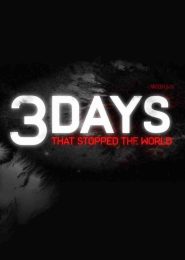Under Our Skin (2008)
Under Our Skin: A gripping documentary directed by Andrew Abrahams, released in 2008, exposes the hidden epidemic of Lyme disease and reveals how our corrupt health care system is failing to address one of the most serious illnesses of our time. Let’s delve into the key aspects of this eye-opening film:
- The Lyme Disease Crisis:
- Under Our Skin takes us on a journey into the world of Lyme disease, a bacterial infection transmitted by ticks.
- Thousands of people go undiagnosed or misdiagnosed each year, often told that their symptoms are “all in their head.”
- Patient Stories and Physician Struggles:
- The documentary follows the stories of patients and physicians fighting for their lives and livelihoods.
- These individuals battle a medical establishment that is sometimes willing to put profits ahead of patients.
- Controversy and Contention:
- Lyme disease is one of the most controversial and fastest-growing epidemics globally.
- The film sheds light on the challenges faced by chronic Lyme patients, who often struggle to receive proper diagnosis and treatment.
- Profit vs. Patients:
- Under Our Skin paints a haunting picture of the health care system, where profit motives sometimes override patient well-being.
- It questions the role of pharmaceutical companies, insurance providers, and medical institutions.
- Jamie Oliver’s Parallel:
- The documentary draws parallels with the efforts of renowned chef and activist Jamie Oliver in advocating for healthier food choices.
- Just as Oliver fights for better nutrition, Under Our Skin advocates for better medical care.
- Global Relevance:
- While the film focuses on the United States, its message resonates worldwide. Lyme disease affects millions of lives across continents.
- By exposing the hidden aspects of this epidemic, the documentary encourages viewers to seek transparency and patient-centered care.
In summary, Under Our Skin is a real-life thriller that challenges us to rethink our understanding of Lyme disease, question authority, and prioritize the well-being of those affected.




